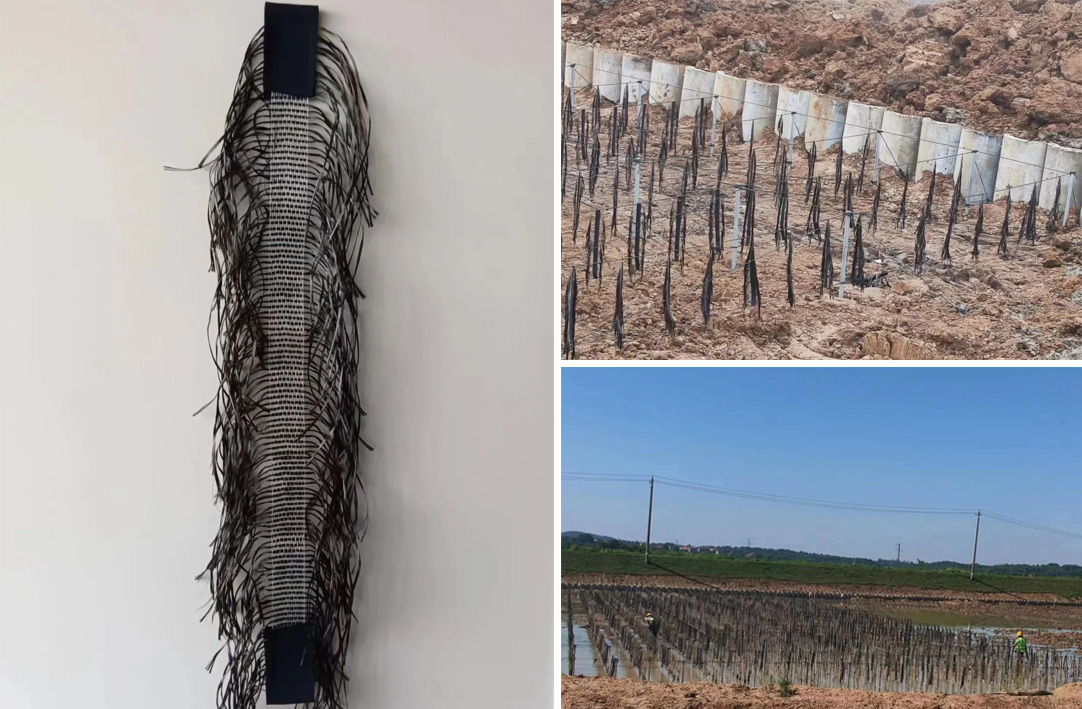Carbon fiber ecological grass is a kind of biomimetic aquatic grass products, its core material is modified biocompatible carbon fiber. The material has a high surface area, which can efficiently adsorb dissolved and suspended pollutants in water, and at the same time provide a stable attachment substrate for microorganisms, algae and microscopic organisms to form a highly active “biofilm”. In addition, the special structure of the surface can significantly enhance the metabolic activity of microorganisms and accelerate the degradation and transformation of pollutants.
The purification mechanism of carbon fiber ecological grass has both physical adsorption and biological decomposition. Its large surface area can firstly adsorb pollutants in water. More importantly, it provides an ideal substrate for beneficial bacteria and microorganisms to form an active biofilm on its surface, acting as a “carrier” or “habitat” for microorganisms. Unlike the traditional solid carbon material, which is easy to be clogged by adsorbents and lose long-term purification ability, the carbon fiber eco-grass is able to swing gently in the water flow, and this dynamic swing makes the attached microorganisms continue to contact with pollutants to promote efficient decomposition and effectively avoid clogging of pore space, ensuring its long-term stable purification performance. Experiments have shown that the device performs well in improving COD and denitrification while reducing sludge production. The advantages of this “living filter” allow it to demonstrate excellent long-term performance in complex natural water environments.
Beyond purification: the multifaceted ecological benefits of carbon fiber
The value of carbon fiber eco-grass goes far beyond water purification. Its inherent properties of light weight, high strength and corrosion resistance give it exceptional durability and longevity, enabling it to continue to perform in demanding aquatic environments. Although replacement is recommended once every 3-5 years for optimal efficiency in natural water bodies, its service life can be further extended with proper maintenance management.
Its unique biophilicity is at the heart of its ecological benefits. Carbon fiber significantly promotes the reproduction of bacteria and microorganisms in water, building a healthy aquatic ecosystem . These microorganisms and their derived plankton become a food source for fish, thus attracting and increasing fish populations. In addition, CarbonFiber Eco-Grass forms “artificial algae farms” that provide important habitats for aquatic organisms, spawning grounds for fish, and hiding places for fish fry, thus actively contributing to the protection and enhancement of aquatic biodiversity. By increasing the transparency of the water body, more sunlight can penetrate the water layer, enhancing plant photosynthesis, promoting the growth of aquatic plants and algae, and further enriching the aquatic ecosystem.
From the perspective of environmental sustainability, carbon fiber itself is an aggregate of carbon, which is harmless to aquatic organisms and has no adverse effects even if ingested. Its long-life characteristic itself reduces the generation of waste. More notably, current research and practice on carbon fiber recycling methods (e.g., efficient pyrolysis processes) is advancing, which not only reduces the cost of recycling carbon fibers by 20-40% , but also significantly reduces the carbon footprint of the production process. The recycling potential of this material makes it a truly sustainable solution, in line with the global trend towards circular economy and green development.
Carbon fiber leads to a green future
The emergence of carbon fiber eco-grass marks an important leap forward in the field of water ecological engineering. It provides a comprehensive solution for water purification and ecosystem restoration with its efficient, durable, bio-friendly and increasingly sustainable properties. With China’s strong commitment to the green low-carbon transition and the construction of an ecological civilization, the development and promotion of carbon fiber eco-grass, a strategic technology that enhances the carbon sink capacity of ecosystems and promotes biodiversity, is particularly important. Looking ahead, carbon fiber eco-grass is expected to play a key role in building healthy waters, enriching biodiversity and achieving sustainable development of the planet, depicting a greener future for our blue planet.
Post time: May-21-2025






